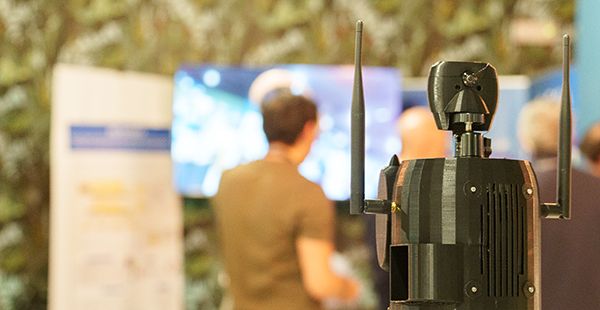
5G success depends on AI, security and non-terrestrial networks
- For Victor Pascual, CTO of ZTE for Spain and Portugal, “5G continues to evolve and we are already entering the 6G era. Artificial Intelligence, far from being a future promise, is a growing reality.
- Germán Martín, Application Engineer at Rohde & Schwarz, places the future of 5G in the development of NTN networks, “essential to provide connectivity in areas where terrestrial infrastructure does not reach”.
- The eighth edition of the 5G Forum ends on Friday 16 May with the celebration of ‘Women’s Day’, a day dedicated entirely to female talent in a virtual format that can be followed through ‘The Observatory’.
Cybersecurity, Artificial Intelligence and non-terrestrial networks (NTN) are positioned as the three major challenges for 5G technology in the coming years. Companies, research centres, technology and security centres, universities and administrations are working – sometimes jointly – on the development of 5G technology and its applications. The fourth and first virtual day of the eighth edition of the 5G Forum served as an informative showcase for all these trends.
For Victor Pascual, CTO of ZTE for Spain and Portugal, “5G continues to evolve and we are already entering the 6G era. Artificial Intelligence, far from being a future promise, is a growing reality. He also shared ZTE’s developments around 5G, Artificial Intelligence and its applications and noted that “at ZTE we are working to take AI beyond the data centres: we are integrating it directly into the network, both in the transmission and in the core, and especially in the radio, which will bring artificial intelligence closer to the use case and the end user”. He further stressed that “ZTE’s role is to provide that infrastructure to fully realise the potential of 5G”.
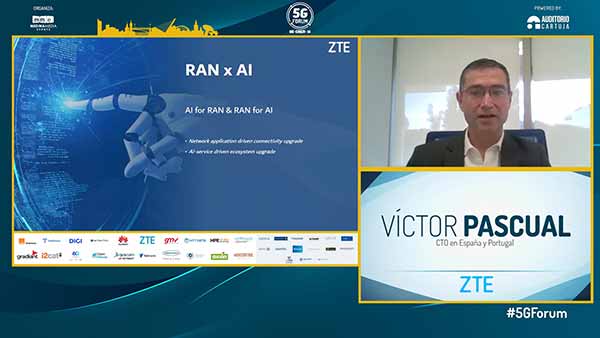
Germán Martín, Application Engineer at Rohde & Schwarz, spoke about non-terrestrial networks or NTN (Non-Terrestrial Network), a topic that was much talked about during the three days of the conference. “These technologies are essential to provide connectivity in areas where terrestrial infrastructure does not reach,” said the engineer, who considers the implementation of these networks to be key to connecting isolated areas and enabling new business models that are currently unviable. “NTN not only extends coverage, but is also a viable, efficient and economical solution for areas without access to terrestrial networks”, insisted the Rohde & Schwarz representative, who highlighted different use cases for these networks such as emergencies and disasters, Internet of Things (IoT), basic connectivity and broadband for rural areas.
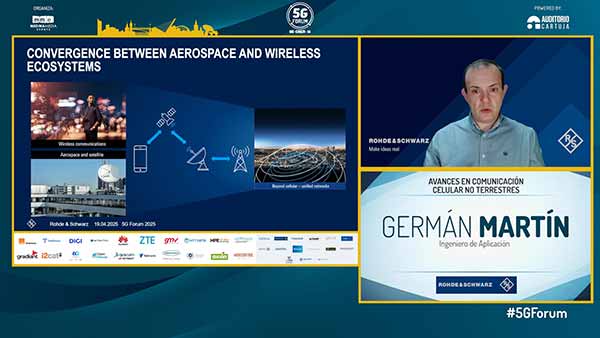
Ignacio Briones, Coordinator of the Cybersecurity Operations Centres Area of the CCN-CERT National Cryptologic Centre, shared the work of this centre specialised in cyberthreats, which aims to “obtain data on the attackers and not on the victims”, as is usually the case, in order to “understand how the attackers operate and thus be able to better protect us all”. The CCN protects classified systems and supports security in all public administrations (national, regional and local), universities and public companies through the national network of SOCs, of which more than 200 public and private entities form part, created with the aim of sharing information and detecting attacks under the premise of three essential functions: prevention, detection and response.
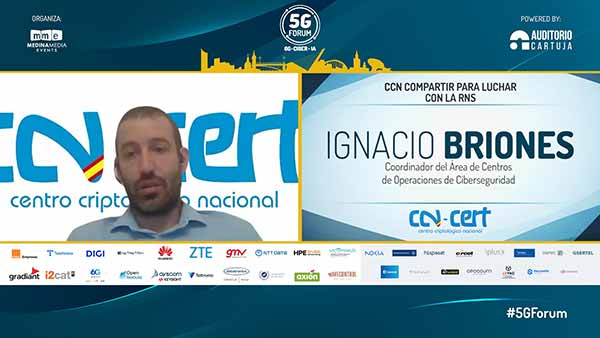
Among the major operators participating in the eighth edition of the 5G Forum, MasOrange was once again the protagonist on the fourth day. Angélica Sánchez, Portfolio Brand Director of MasOrange followed up the Cyber Day with a presentation on the challenges and solutions in the 5G network to protect your business and your customers. “At MasOrange we have a specialised team that detects more than 20 million suspicious events every week. Of these, we automatically block 96%”, said the company’s executive, who highlighted several cybersecurity projects such as Orange’s CyberProtection system, based on Artificial Intelligence; TUYO, a comprehensive parental control solution; and a website specialising in cybersecurity. “We are not only targeting residential customers. In the business sector, we protect the networks of SMEs, freelancers and large accounts with mobility, email, network and workstation solutions. In addition, in the public sector, we have been awarded the CORA contract, which positions us as a reference provider for connectivity and cybersecurity services for the Spanish public administration“.
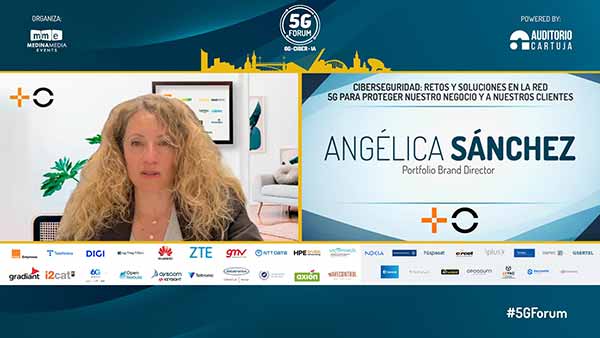
Nerea Míguez, 5G/IOT Business Development Manager at Vodafone Spain, spoke about the increase in spending on cybersecurity, automation and the use of artificial intelligence, the expansion of the cloud and the Internet of Things (IoT) driven by the British company, which in 2025 will celebrate a quarter of a century in the enterprise sector. Vodafone has also taken a leading role in the development of private networks, a key component of the 5G environment, with more than 100 deployments in different EU countries: “The benefits of private networks are clear: increased security, guaranteed bandwidth, low latency and wireless mobility”, he explained.
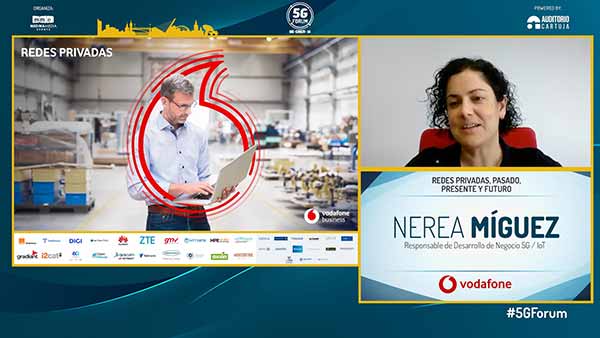
Aitor Fernández Martín, President and Co-Founder of the Spanish Association of Connected Autonomous Vehicles (AEVAC), also spoke about cybersecurity, but with a focus on connected vehicles. “Cybersecurity is the great current challenge of autonomous mobility” and in this context SELFIE was born, a European project whose objective is to achieve a smarter, safer, more resilient, ethical and reliable mobility, while seeking for systems to act autonomously, collaboratively and in real time.
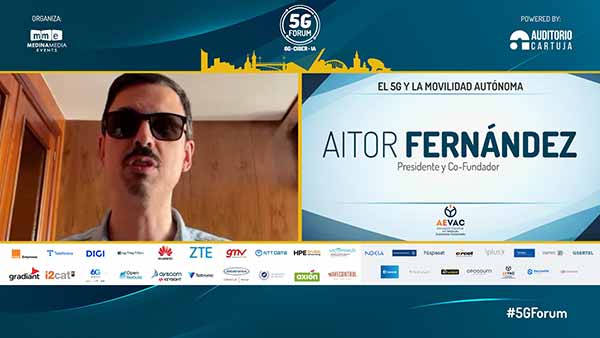
Manuel Ángel Álvarez González, technical sales director for LATAM and Europe at Gsertel, shared the current challenges in service assurance derived from the evolution of mobile telephony standards, and his company’s proposal to face these complex measurement scenarios. “The technological leap to 5G implies profound changes in the network architecture that generates a complexity that requires more sophisticated measurement and monitoring tools”, said the expert.
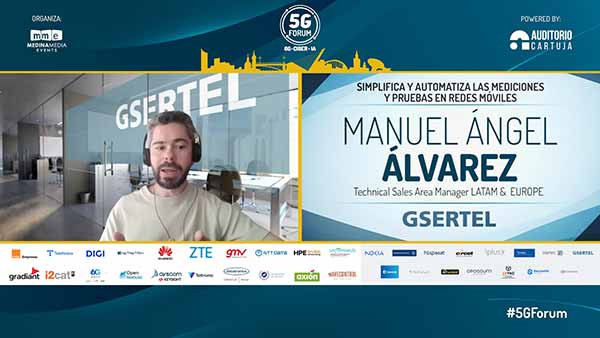
Ángel García Castillejo, vice-president of the National Competition Market Commission (CNMC), shared the work of this body in the field of connectivity and welcomed Spain’s outstanding position in this area. “Our fibre optic deployment is higher than that of countries such as the United Kingdom, France, Germany and Italy combined, while in terms of 5G, according to CNMC data as of 31 December 2023, 85.4% of the Spanish population already has 5G coverage, and almost 100% has 4G coverage”, the expert detailed.
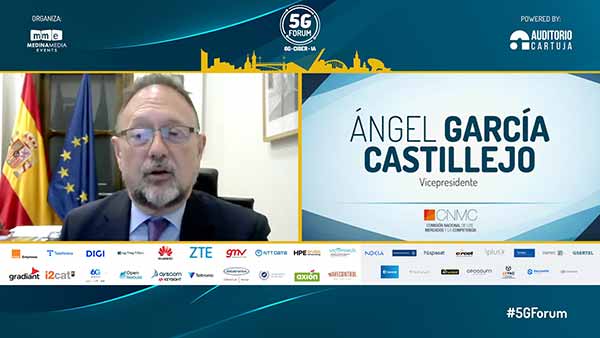
Carles Antón Haro, member of the Board of Directors of the 6G Smart Networks and Services Industry Association, chair of the 6G-IA Trials Working Group and director of European Programmes and Industrial Contracts at the Centre Tecnològic de Telecomunicacions de Catalunya (CTTC), spoke about strategies and recommendations for reaching a global consensus on the development of 6G. “6G is gaining relevance globally. Europe, through the work of SNS JU and projects such as SNS ICE, is seeking to lead the development through international consensus and cooperation strategies“, he said.
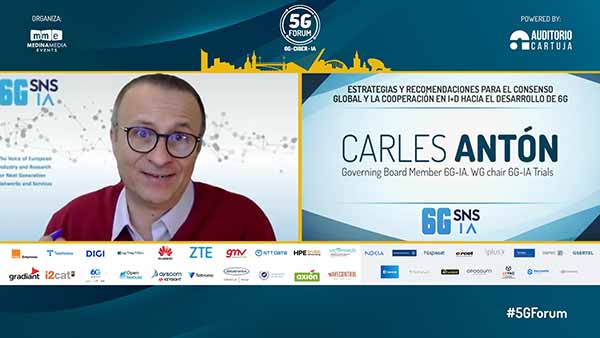
Alberto Castillejo, commercial director of WNC and member of the GSA Executive Committee, spoke about the Fixed Wireless Access (FWA) Forum, “a technology that uses mobile networks (4G/5G) to deliver internet to the home or business, without the need for fibre cables“. In recent years, it has become an effective alternative for connecting remote areas and is gaining ground in both developed and emerging economies. “FWA is consolidating itself as an essential technology within 5G, especially useful for bridging the digital divide”, the expert stressed.
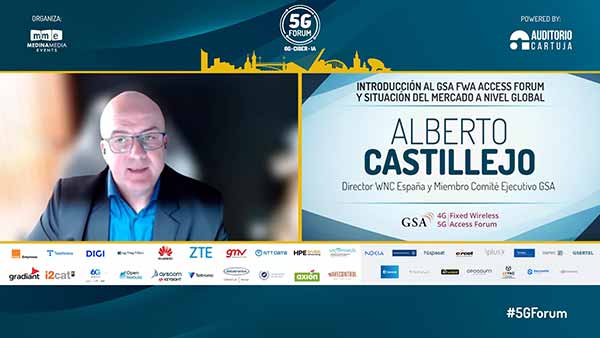
José Otero, CEO of ICT Development Consulting, discussed the challenges and opportunities for 5G in Latin America, where countries such as Brazil, Uruguay, Chile and the Dominican Republic are leading this deployment with coverage exceeding 67% and reaching up to 75%. “5G is advancing, but unevenly. Geopolitical tensions, costs and the lack of accessible devices threaten its expansion”, said José Otero.
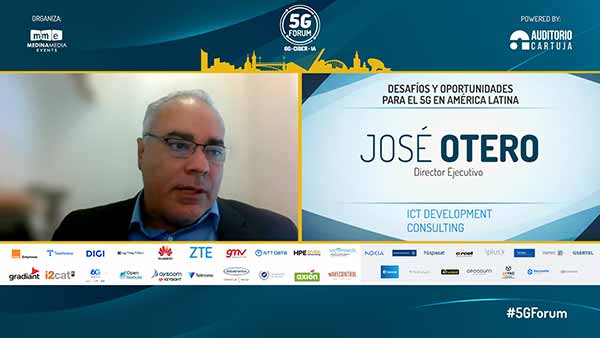
Eduard Martín, CIO and Director of the Smart Connectivity Programme at Mobile World Capital Barcelona, shared what the 2025 edition of the Mobile World Congress had to offer from the point of view of the Mobile World Capital Foundation, a key player in taking up the legacy that the event leaves in Barcelona and throughout the country. “From a technological point of view, we will continue to talk about 5G and 6G. We are still in the consolidation phase of 5G, and 5G standalone is yet to be fully deployed, which can no longer be delayed,” said the director, who also expects “significant advances in artificial intelligence, not only generative, but applied to adaptive networks that make services more efficient”.
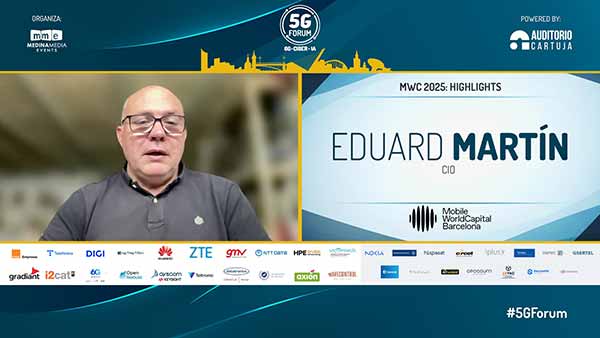
Successful participation
A total of 87 speakers, 40% of whom are women, discussed innovation, projects and 5G deployment both in Spain and internationally. European, American and Asian experts and leaders present the latest in 5G technology, Artificial Intelligence and cybersecurity, and discuss when the next generation of mobile telephony will arrive: 6G.
Telephone operators, technology multinationals, institutions, local, regional and national administrations, organisations, universities and leading companies in the telecommunications sector, totalling 70 entities from the national and international scene, make up a top-level agenda. Participants include the country’s main operators – MasOrange, Telefónica, DIGI and Vodafone – along with other leading multinationals in the sector.
All the conferences are available for on-demand viewing through ‘The Observatory’, the digital platform of Medina Media Events, where each conference will be available 24 hours a day, 365 days a year, free of charge.
The eighth edition of the 5G Forum is organised by Medina Media Events and is supported by Orange, Telefónica, DIGI, Netmetrix, Huawei, ZTE, GMV, NTT DATA, HPE – Aruba Networking, Vicomtech, Gradiant, i2CAT, OpenNebula, Ayscom, Keysight, Teltronic, Datatronics, Oracle, Universidad de Málaga, Axión, Wavecontrol, Nokia, Rohde & Schwarz, Hispasat, Circet, Iplus|F, Dihbu, SAPEC, Gsertel, Kenmei, Ingenalia, AIFunded, Opossum, AEVAC and Secmotic, among others.
Today, fifth and final day, virtual second day
The 5G Forum 2025 ends this Friday, May 16, with a day dedicated to learning about the careers of leading women in the technology sector, with the aim of motivating girls and young women to study STEM careers.